Think about the few TV shows that you make time to watch every week, or the ones you binge-watch as soon as a new season drops.
What separates those “must-see” shows like Stranger Things or Westworld from the ones you miiiiiiiiight get around to watching eventually?
In general, a show only attracts that level of addiction when its viewers are…
- emotionally invested in finding out what happens next
- communally sharing real-time culture-defining moments with fellow fans
- absolutely desperate to avoid spoilers
And the one show that has truly mastered this art of must-see TV is Game of Thrones.
(EDIT: Well, maybe until Season 8…)
There’s a reason why Westworld, HBO’s heir apparent to Game of Thrones, is still a minor niche hit, while GoT superfans can make a living by posting prediction videos to YouTube, where millions of viewers spend more time debating, deconstructing, and obsessing over the show than actually watching it.
This level of fervent fandom doesn’t happen for other TV shows. It’s reserved for global phenomena like the Marvel Cinematic Universe, or cultural touchstones like Star Wars, which puts HBO’s Game of Thrones in a class by itself, TV-wise.
Westworld hasn’t been able to enthrall and delight audiences in quite the same way. This video by Sage Hyden highlights Westworld‘s biggest story problem in that regard, and what Game of Thrones does so well by comparison.
So… how did they do it?
How did showrunners David Benioff and D.B. Weiss turn author George R.R. Martin‘s sprawling A Song of Ice and Fire novels into the most compulsively-watched show on television?
Here are the eight simple ingredients that make Game of Thrones so addictive, and why no other show has nailed this formula in quite the same way.
(And, of course, WARNING: SPOILERS AHEAD.)
Lost… er, Lots of Secrets
The first show that truly qualified as a “must-see” in the post-Internet era was Lost.

Worst turbulence ever
It’s easy to see why. Right from the pilot episode you have nearly every ingredient you need to hook an audience for the long haul. You don’t know who anyone is on Lost, or why they were on the plane, or why the plane crashed, or where this mysterious island is, or what’s on it.
By filling their show with secrets, Lost gave its audience a seemingly endless trove of clues to search, mysteries to unpack, and details to pay very close attention to — all of which rewards close, obsessive viewing.
And while Lost screenwriter JJ Abrams has recently come under fire for the formulaic nature of his infamous “mystery box” style of storytelling — in which often-fumbled payoffs are rarely worth their intricate setups — the real problem isn’t having too many mysteries in a TV show; it’s having too many unfulfilling answers.
On Game of Thrones, there may be fewer secrets, but they’re integral to both the plot and the identities of every character.
Who are the White Walkers, and what do they really want?
Who are Jon Snow’s parents, and why does Ned Stark refuse to tell anyone?
What did Jojen Reed mean when his response to being asked “how will we know the end” was simply a cryptic “you’ll know”?
Likewise, the show’s intentionally vague prophecies provide endless hours of fuel for fan theories about everything from “who is the prince who was promised” to “who is the valonqar that will someday kill Cersei?”
And, on a more interpersonal level: which character knows what about whom, and how will they use their knowledge as leverage to get what they want?
When your ensemble cast is as much defined by their secrets as by their actions, every scene becomes a must-see for fans who are trying to stay one step ahead.
RELATED POST:
Use Plot Twists to Disorient Your Audience
The best way to keep an audience addicted to a show is to subvert their expectations
“Must-see” TV is based on the presumption that our expectations of a show must be wrong. After all, if we always guessed the next plot twist correctly, we wouldn’t need to watch the show; we could just predict the whole outcome right from the very first episode.
This means that audiences watch their favorite must-see shows hoping that their expectations will be proven wrong in a way that’s still thematically and logically coherent.
In other words, we want to be satisfyingly surprised.
In order to do this, a showrunner must first establish what those expectations are, or what seems like the norm — for this show, and these characters, in this genre, on this TV channel — and then, once the audience has its bearings… twist them all around.
The best example of this comes in the first season of Game of Thrones, when the show’s apparent hero, Ned Stark (Sean Bean), is unjustly killed a few episodes into the storyline.

Oh, they’re not really gonna… uh… hey, wait…
Not only does this twist put his family in life-or-death peril (thus raising the practical stakes of the plot) while subverting everything we thought we knew about the trope of the infallible hero, but it also sends a clear signal to the audience:
“Don’t get too comfortable around here, because you can’t trust the usual rules.”
Giving an audience a mystery to unravel is a useful hook. But undermining what they believe are the rules of the genre itself in order to keep them guessing about what’s going to happen next is a surefire strategy for making them lean in and pay attention.
Show Viewers a World They Can’t Easily See Otherwise
Lost takes place on a fantasy island.
Game of Thrones takes viewers to a sordid medieval land of swords, sex, dragons, and drinking.
And Westworld lets the audience vicariously explore a sex- and violence-filled Old West pleasure park that turns out to be a nightmare hellscape for everyone involved.
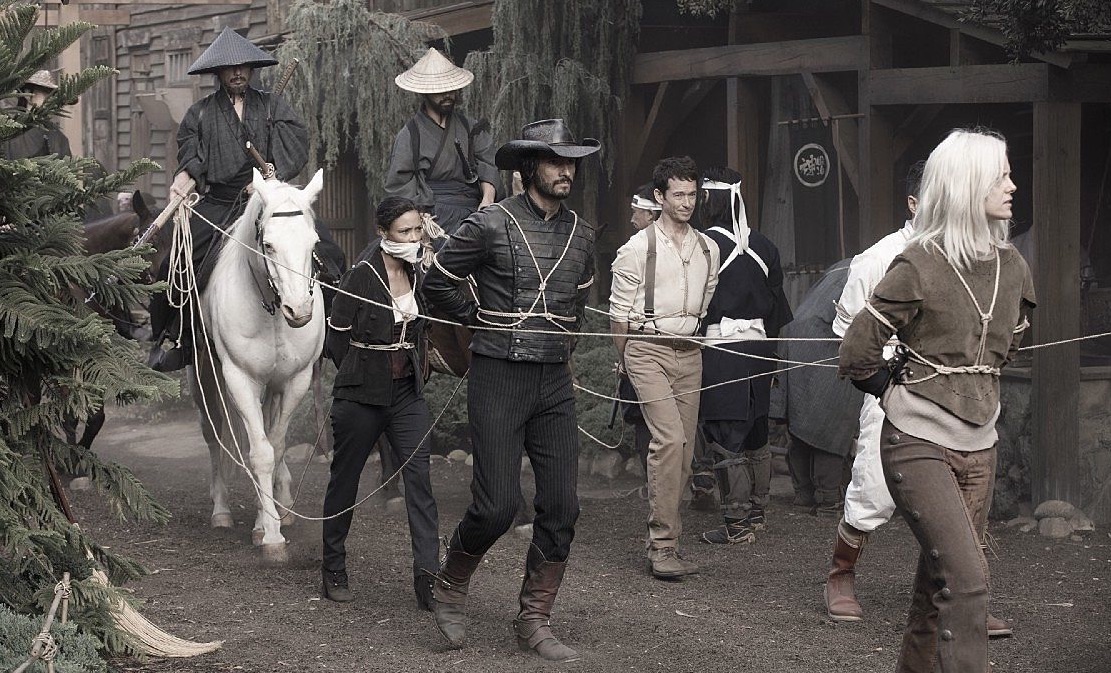
Cowboys taken prisoner by samurai? Okay, I’ll watch…
Even reality-based shows like The Sopranos, The Wire, and Breaking Bad give viewers a glimpse of experiences they’re unlikely to have during the rest of their week, like life in the mafia, the drug wars, and a meth lab on wheels.
And if you’re going to use a familiar setting, deconstruct it.
Stranger Things may take place in the stereotypical small town of Hawkins, Indiana, but what’s hiding underneath the town’s surface — and in the hearts of its shady population — is the riddle that keeps fans guessing.
Of course, a show about flaming dragons and ice zombies was initially considered a long shot for mainstream success when Game of Thrones debuted in 2011. But the real genius of Martin’s source material is that Westeros is much more than just swords and whores; it’s a home for deeply compelling, multidimensional characters, whose interpersonal struggles are the real hook for any truly compelling story.
And when you’re never quite sure what they’ll do next? Well, that’s even better.
Create Unpredictable Characters
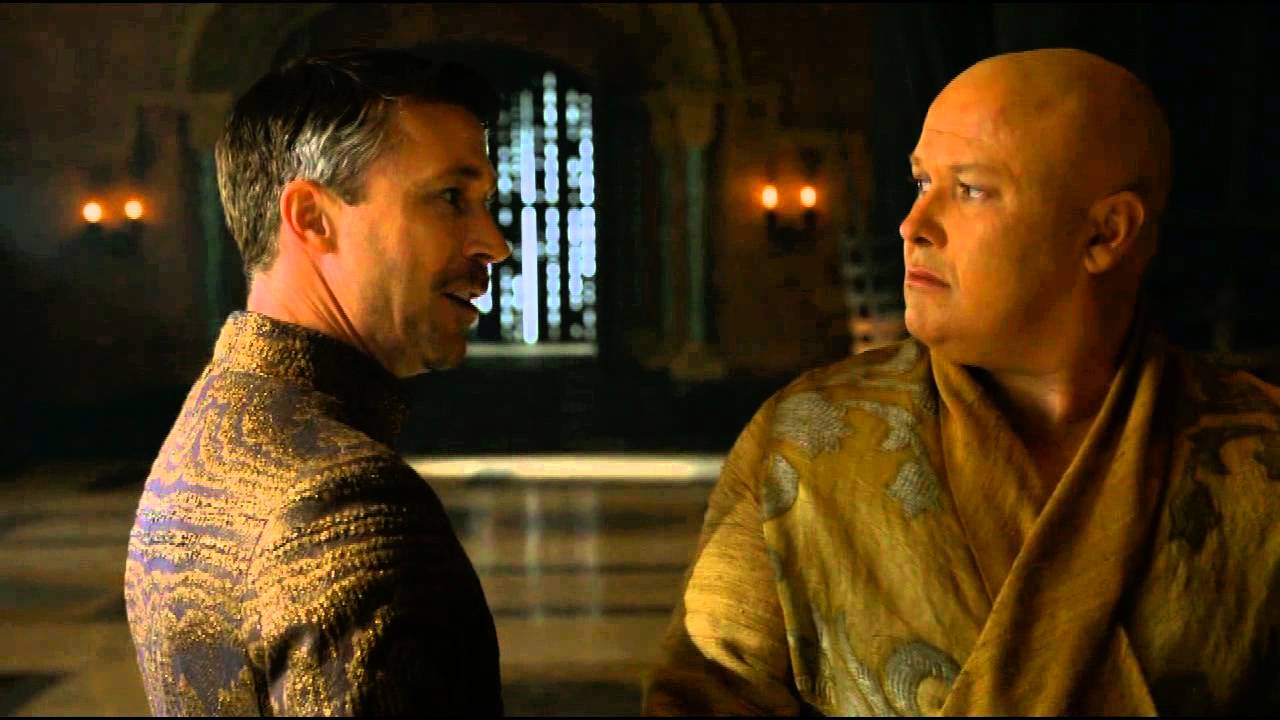
A man’s got to have a code.
Even a show filled with secrets can get stale, so its catalysts need to keep stirring the pot.
This makes schemers like Littlefinger (Aidan Gillen) and Varys (Conleth Hill) invaluable to a show like Game of Thrones that relies on gamesmanship and behind-the-scenes dealmaking to advance the plot while tightening the screws.
Since their ultimate loyalty is to themselves and their own inscrutable motives, you can never take what they say and do at face value, which adds an extra dose of uncertainty to every scene they’re in.
Stringer Bell, Omar Little, and even detective Jimmy McNulty served this same purpose on The Wire, in which their stated motives didn’t necessarily rule out any particular action, no matter how nefarious.
And series like Breaking Bad, Mad Men, and Black Sails took this conceit one step further, making the lead character himself entirely unpredictable. On these shows, instead of wondering how our heroes will overcome the amorality of others, we tune in to see how our antiheroes will overcome themselves.
RELATED POST:
Why Black Sails Has One of the Best Main Characters in TV History
Keep the Scales of Justice Imbalanced
If the heroes always win, there’s no tension.
That’s why the most addictive TV shows don’t fall prey to oversimplified “good vs. bad” storylines, but instead offer dueling worldviews in which every major hero (or antihero) is simultaneously the villain from someone else’s point of view.
What makes crime dramas like The Wire, The Sopranos, and Boardwalk Empire so compelling is that the heroes and villains seem to have equal odds of success. Sure, the criminals may be operating outside the law, but the law has its own flaws and limits. This means the cops will often see their perfect plans foiled at the last minute, or have to settle for nabbing an underling while the mastermind gets away.
On Game of Thrones, morality is always subjective, even if certain characters like Jon and Daenerys tend to rise above while the Boltons and Lannisters often sink below. As such, there’s no guarantee that the “right” person will ever be victorious in a negotiation or on a battlefield, especially when variables like Littlefinger, Melisandre, and Euron Greyjoy’s fleet of doom are involved.
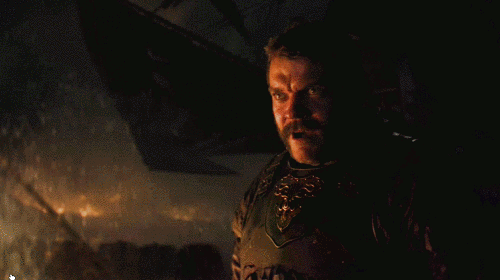
The ultimate party crasher
This same sense of moral relativity is what made soap operas Dallas and Dynasty so compelling in the ’80s, and its DNA can be found in modern spins like Billions and Riverdale.
Plus, we love to root for self-sabotaging antiheroes like Tyrion and Jaime, or villains whose surprising humanity occasionally shines through the cracks, like Tywin’s unexpected bond with Arya or the Hound’s reluctant humanity hiding beneath his sneer.
On Game of Thrones, we don’t just tune in hoping to see justice served; we show up wondering if it will ever be served at all, from whose perspective, and at what cost to the “winner.”
Sabotage the Safety Net
This, more than any other ingredient on this list, is Game of Thrones‘s true defining quality.
Ned Stark’s death was a jarring and unmistakable declaration that all bets are off, no one is safe, and every character is expendable. But if that had only happened once on the show, it would have been a gimmick rather than a game-changing ethos.
And then the Red Wedding happened.
And then Joffrey drank that wine.
And then Ygritte died in Jon’s arms.
And then Cersei…
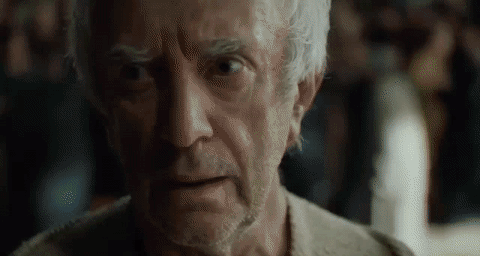
aaaaaand boom goes the dynamite
Well, you get the idea.
Over and over, Game of Thrones reminds us that impermanence is the show’s only constant.
Granted, The Wire did this years before Game of Thrones was on the air, but its shocking ends were mostly reserved for supporting characters. Game of Thrones doesn’t play favorites.
That is, until recently.
In fact, its recent reluctance to kill off its main characters in its seventh season even when they do incredibly stupid things has caused many fans to wonder if the show has lost its direction (or its nerve).
But by establishing this level of “anything goes” unpredictability right from season one, Game of Thrones earned itself the benefit of the doubt. Now fans are steeling themselves for what’s likely to be an onslaught of beloved character deaths in the show’s final season, which could be even more harrowing all at once than if they had been scattered over the past few seasons.
With a show like Game of Thrones, you have to show up every week to see if your favorite character survives, or else you run the risk of hearing the bad news in spoilers across Facebook and Twitter the next morning.
That’s because nothing locks an audience in at the same time every week quite like having to watch every episode with their fingers crossed.
RELATED POST:
Diverge (Slightly) from Your Source Material
Speaking of shredded safety nets, what happens when you can’t even trust the source material that a show is based on?
One of Game of Thrones‘s secret weapons compared to other series is that its story already exists in another format, which fans can pore over for additional clues to the show’s many mysteries. By steeping themselves in the history and lore of Westeros, the fans become the show’s chief detectives, comparing both versions of the story and trying to predict which plot twists will happen based on details from each medium.
But not everything from the books is in the show, which creates a whole new layer of unpredictability for fans to scrutinize.
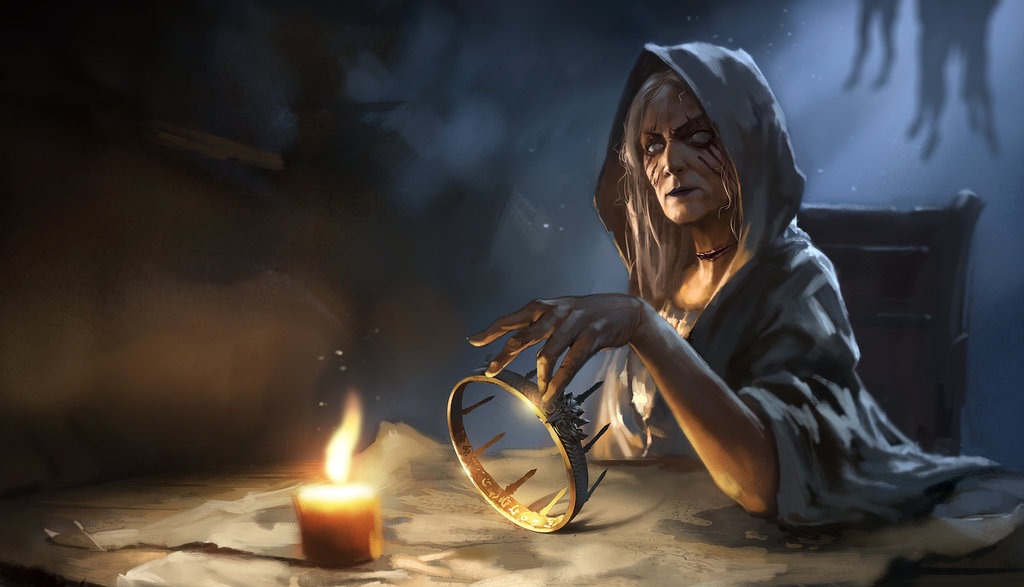
Mother… tell your children not to walk my way…
For example, the character of Lady Stoneheart is absent from the show, so fans are left to debate how her plot points will be resolved. Which of her traits will surface in other characters, and who will take the actions she does?
By casting off a few of its pre-existing bonds, the TV version of Game of Thrones provides a complementary experience for fans of the books while inviting them to speculate about how the changes will affect the show’s future.
And boy, do they speculate… especially now that the show has outpaced the books.
Because the plot of the series has progressed past the endpoint of Martin’s most recent novel, fans are free to conjecture about how the show will end, who will survive, and what it all means — which, in a way, may be the show’s most genius and addictive meta-element of all.
Hope in Jeopardy
There’s one more ingredient that sets Game of Thrones apart from its prestige drama contemporaries, and it’s easily overlooked… which is why so few other shows seem to get it right.
Hope.
Game of Thrones spends a lot of time showing us the worst aspects of humanity, but it does this so our heroes’ nobler traits will stand out by comparison. When you see what life is like under a tyrant, you can’t help but actively root for a better outcome.
It also beats the unending drum of creeping dread, right from the very first episode: “Winter is coming.” The white walkers and their growing hoard of undead soldiers are on the move, and they’ll stop at nothing until their objective is met. We spend the entirety of Game of Thrones knowing that everything else is simply a distraction or prologue leading up to this climactic showdown. And by seeing glimpses of how terrifyingly unstoppable the white walkers are, we can feel our own optimism for a happy ending crumble in our hands.
And yet, there’s always hope.
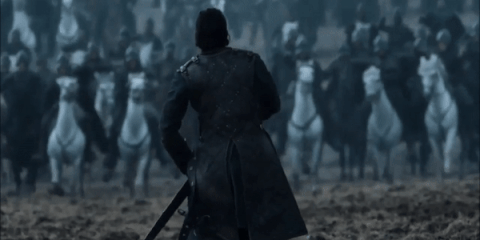
Because if we can’t imagine a happy ending — even if the odds seem insurmountably stacked against it — then why are we still watching?
If the audience doesn’t believe a positive outcome for the characters they care about is still possible, they’ll stop tuning in.
That’s one reason why The Walking Dead has seen its ratings crash over the past few seasons, as audiences finally got burned out on the show’s endless cycle of joyless nihilism.
Game of Thrones may be a lot of things — sexy, sudsy, tense, overwrought, melodramatic, schticky, sometimes in questionable taste, and occasionally in defiance of all expected logic — but the one thing it’s not is hopeless.
And even if you can’t trust a show to keep your favorite characters alive, to dispense justice that feels earned, or to stick to a clear delineation between right and wrong… as long as you still have a glimmer of hope, you won’t want to miss what happens next.
RELATED POST:
More Posts on These Topics
How “The Bells” Ruins Several Major Character Arcs in Game of Thrones
How Avengers: Endgame Succeeds on the Strength of Marvel’s Character


0 Comments